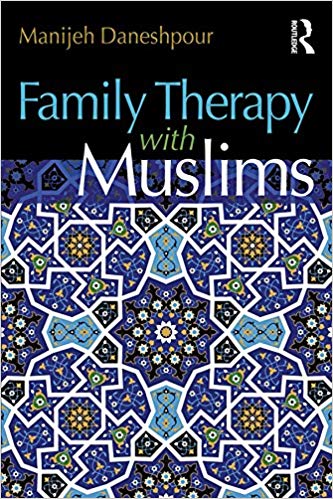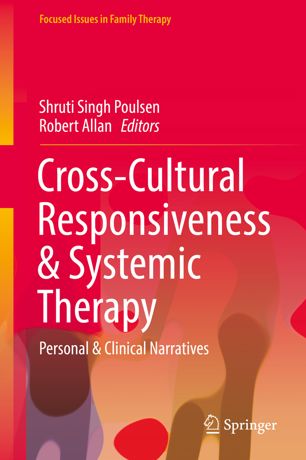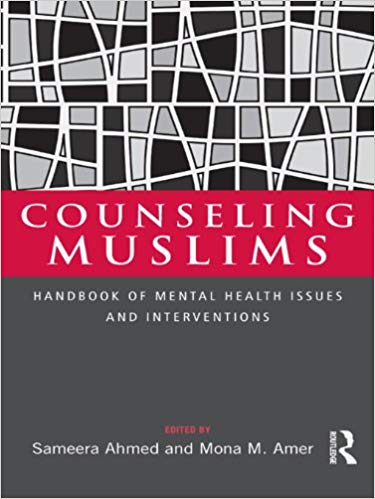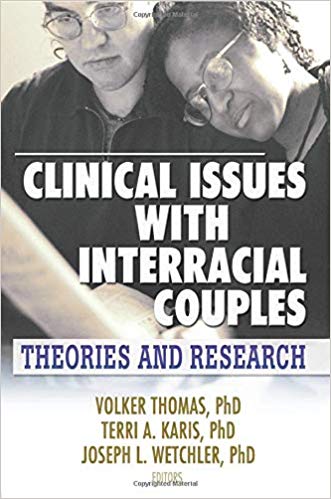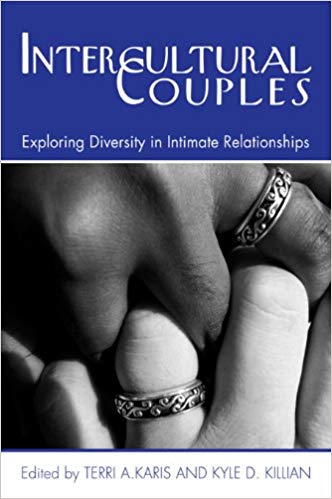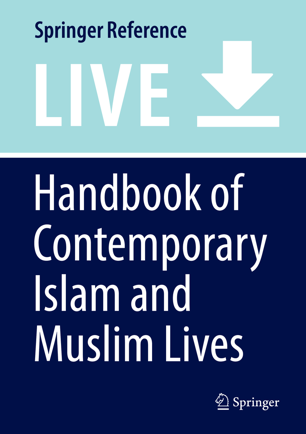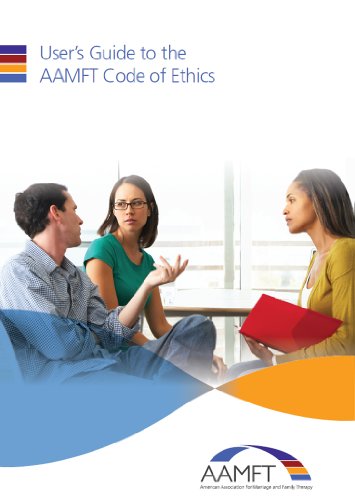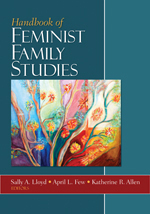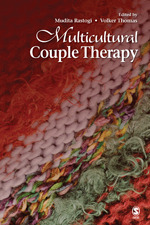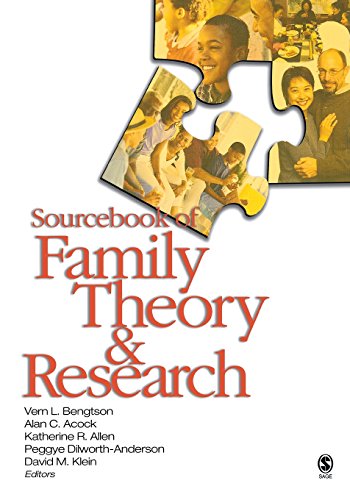Books
Gender, Power, and Global Social Justice
This book analyses how practitioners can use psychotherapy as a healing mechanism, focusing on the intersection of gender, power, and social justice within the global context.
It begins by interrogating the concept of social justice itself before examining men’s and women’s issues from biological, sociological, contextual, and ecological perspectives. Each chapter covers individual, couple, and family therapy as well as training and supervising for heterosexual and homosexual individuals from a social justice standpoint.
Family Therapy with Muslims
Family Therapy with Muslims is the first guide for mental health professionals who work with Muslims in the family therapy setting. The book opens with a section defining the similarities across Muslim cultures, the effects of postcolonialism on Muslims, and typical Muslim family dynamics. The author then devotes a chapter to different models of family therapy and how they can specifically be applied to working with Muslim families. Case studies throughout the book involve families of many different backgrounds living in the West—including both immigrant and second generation families—that will give professionals concrete tools to work with clients of their own.
Cross-Cultural Responsiveness & Systemic Therapy
This progressive volume takes a nuanced approach to understanding systemic therapies with diverse client populations, leading to culturally responsive therapy. Synthesizing diverse streams of psychology, philosophy, and social theory, chapters focus on cutting-edge issues in couple and family therapy including social justice, power, and privilege in therapy, the role of evidence-based practices, and integrative approaches to couple and family therapy. Each contributor is either a recent immigrant to the U.S. or a person of color, bringing unique personal lenses and experiences to the exploration of the topics. And coverage also makes clear what white therapists need to learn—and unlearn—before they can work responsively with clients of color.
Counseling Muslims
A young female client presents with anorexia nervosa and believes that her problem has its roots in magic; parents are helpless in the face of their son’s substance abuse issues; an interracial couple cannot agree on how to discipline their children.
How would you effectively help these clients while balancing appropriate interventions that are sensitive to religious, cultural, social, and gender differences? This handbook answers these difficult questions and helps behavioral health practitioners provide religio-culturally-competent care to Muslim clients living in territories such as North America, Australia, and Europe.
Clinical Issues with Interracial Couples
Go beyond cookie-cutter therapy and interventions to provide culturally relevant therapy that works for your clients in interracial relationships!
With this book, you’ll explore an array of relational issues faced by various configurations of interracial couples. Then you’ll learn specific intervention strategies for treating these couples in therapy. The first section presents research and theoretical chapters on issues faced by interracial couples who are heterosexual; the second focuses on issues facing racially mixed gay and lesbian couples; and the third provides you with specific interventions to use with couples in interracial relationships. Clinical Issues with Interracial Couples: Theories and Research is an important addition to the collection of any therapist who counts an interracial couple among his or her clients.
Intercultural Couples
While cross-cultural relations were once assumed to be inherently problematic, in recent years these couples have increased in both numbers and social acceptance, and there is now a growing awareness of how little we really know about them. Addressing this gap in our knowledge, this book presents 12 chapters focusing on cross-cultural couple formations (i.e., a partner from the U.S. and another from abroad). Highlighting both the struggles and successes of couples, this book challenges the principle of homogamy, helping the reader gain a deeper understanding and respect for intercultural couples. The chapters tackle a broad range of topics and issues, including systemic considerations of the phenomenon of cross-cultural couples, bilingual couples, interfaith relationships, struggles in such couple formations, different methods of approaching solutions, and the use of the internet to meet partners from diverse backgrounds.
Handbook of Contemporary Islam and Muslim Lives
This is a comprehensive handbook which for the first time provides a general yet detailed discussion of contemporary Islam and various aspects of Muslim lives. It offers a much needed tool for an introduction to the world of contemporary Muslim life and debate, and a link of continuity between the Muslim world and Muslims living and born in the West. The reader gains access to articles by leading scholars who observe phenomena in a post-9/11 context and from a global viewpoint. The topics have been carefully selected to provide the reader with both the necessary general view that a good handbook must offer while presenting details and information, as well as ethnographic examples, to inspire further research and interest. Indeed, each chapter will offer topical reading suggestions from which one can expand the material discussed in the chapter. The approach of the handbook is mainly social-anthropological, but attention is given to other disciplines like history, geography, political studies, as well as gender studies and cultural studies.
User’s Guide to the AAMFT Code of Ethics
The AAMFT Code of Ethics defines the professional standards for marriage and family therapists (MFTs). This publication examines real-world scenarios which fall under the Code and provides commentary on ethically appropriate responses and conduct. The perfect refresher for experienced MFTs and a great introduction for those new to the field. Updated to reflect 2012 additions to the Code including online therapy and storage of electronic materials.
Handbook of Feminist Family Studies
The Handbook of Feminist Family Studies demonstrates how feminist contributions to family science advance our understanding of relationships among individuals, families, and communities. Bringing together some of the most well-respected scholars in the field, the editors showcase feminist family scholarship, creating a scholarly forum for interpretation and dissemination of feminist work. The Handbook’s contributors eloquently share their passion for scholarship and practice and offer new insights about the places we call home and family. The contributions as a whole provide overviews of the most important theories, methodologies, and practices, along with concrete examples of how scholars and practitioners actually engage in “doing” feminist family studies. Key Features:Examines the influence of feminism on the family studies field, including the many ways feminism brings about a “re-visioning” …
Multicultural Couple Therapy
Most traditional couple therapy models are based on the Eurocentric, middle-class value system and are not effective for today’s psychotherapists working in multicultural settings. Multicultural Couple Therapy is the first “hands-on” guide for integrating couple therapy with culture, race, ethnic identity, socioeconomic status, religious beliefs, sexual orientation, and immigration experiences.
The editors and a culturally diverse group of contributors follow a common outline of topics across chapters, related to theory, research, practice, and training. They report on the application of major evidence-based models of couple therapy and demonstrate the integral role played by contextually based values involved in relationships, conflict, and resolution.
Sourcebook of Family Theory and Research
Sponsored by the National Council on Family Relations, the Sourcebook of Family Theory and Research is the reference work on theory and methods for family scholars and students around the world. This volume provides a diverse, eclectic, and paradoxically mature approach to theorizing and demonstrates how the development of theory is crucial to the future of family research. The Sourcebook reflects an interactive approach that focuses on the process of theory building and designing research, thereby engaging readers in “doing” theory rather than simply reading about it. An accompanying Web site, https://www.ncfr.org/sourcebook, offers additional participation and interaction in the process of doing theory and making science.


